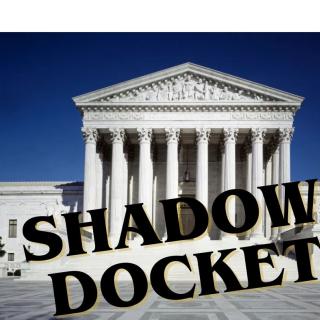Advertisement
As a candidate for Franklin County commissioner, State Representative Kevin Boyce (D-Columbus) has questionable fitness for the position because of documents released this year concerning his 2009 to 2010 tenure as Ohio’s state treasurer. The documents include an independent investigation report on the treasurer’s office, U.S. Securities and Exchange Commission (SEC) filings, and other public records.
Boyce is running against Republican Terry Boyd to be on Franklin County’s board of commissioners. The three commissioners are responsible for a $1.35 billion annual budget providing health care, public safety, economic development, human services, and other essential functions for the nation’s 30th-largest county.
While state treasurer, Boyce was in charge of the nation’s sixth-largest treasury and responsible for investing and protecting $250 billion in state assets. The documents show major failings in his job performance, resulting in the largest bribery and kickback scandal in the state government’s history.
Franklin County voters should carefully consider Boyce’s record as state treasurer in deciding whether he has the skills to be a county commissioner.
Setting the stage for disaster in the treasurer’s office
After state treasurer Richard Cordray won a special election to become attorney general in January 2009, then-Gov. Ted Strickland had to select a successor treasurer to serve the remainder of Cordray’s term from January 2009 to January 2011.
Columbus city councilman Kevin Boyce, age 37 at the time, applied for the job. After being appointed to Columbus City Council, he had served two terms and chaired the finance and zoning committees. Despite Boyce’s inexperience with investments, Strickland appointed him.
Because of Boyce’s limited financial experience, the Strickland administration wanted him to retain Amer Ahmad for support in running the office. Cordray had hired Ahmad as the office’s chief financial officer in May 2008. Ahmad had an undergraduate degree from Columbia and an M.B.A. from Harvard. He worked in investment banking on Wall Street for eight years until Cordray hired him.
Boyce not only kept Ahmad as CFO but also made him deputy treasurer. With many of Cordray’s personnel following him to the attorney general’s office, Boyce had numerous other positions to fill.
About five months after Boyce became treasurer, the Dayton Daily News described the persons selected. In addition to his chief of staff being a former executive director of the Ohio Democratic Party, Boyce “hired a number of friends and close associates to key positions.” The hires included two of his friends from high school and someone from his church. He “assembled a team of top aides pulled from the Ohio Democratic Party, Columbus City Hall and politically connected families.”
It appeared that like Boyce himself, the persons he hired had political connections but not necessarily skills for their jobs. Ahmad soon believed he was among coworkers, including the state treasurer, who lacked his financial sophistication and had no ability to question his acts.
As the deputy state treasurer in this environment, Ahmad realized he had complete and unchecked power over Ohio’s treasury. Viewing himself as bringing to the office a “Wall Street perspective,” that perspective may have then kicked into high gear as he began stealing as much as he could.
Corruption on the investments side of the treasurer’s office
Ahmad first identified the office’s investments side as defenseless against the larceny he was capable of committing. For help with his scheme, he colluded with his high-school friend Douglas E. Hampton, a securities broker and financial consultant. Hampton owned a small firm in Canton called Hampton Capital Financial Management and had been Ahmad’s financial adviser since 1996.
Early in Boyce’s tenure as treasurer, Hampton applied to be on the treasurer’s list of approved securities brokers. Although his application didn’t meet the office’s requirements for selection as a securities broker, Ahmad made sure he was on the list anyway.
Ahmad next devised an investment strategy for the office involving the short-term buying and selling of securities rather than holding them for the long term. Whether this strategy was good for the state was irrelevant to Ahmad. The goal was to enable the office’s brokers to make substantial amounts from executing numerous trades.
Ahmad then began providing far more brokerage business to Hampton than to the office’s other brokers. Ahmad encouraged him to take higher commissions on the trades than Hampton originally intended to take. Amazingly, Ahmad was able to keep the amount of the commissions off the office’s internal trading tickets, thus hiding the exorbitant charges. Because of these corrupt trading practices, Hampton’s revenue skyrocketed.
In return for the generous brokerage business, Hampton had to pay kickbacks. Ahmad told him to hire Ahmad’s close friend, attorney Noure Alo, as a lawyer and lobbyist. Hampton paid Alo half the commissions he was making from the state business that Ahmad was steering to him. These kickbacks were disguised as payments for legal and lobbying services. After receiving the payments, Alo paid half the amounts in cash to Ahmad.
Ahmad also directed Hampton to pay kickbacks through a company called Going Green Landscapes and Lawn Care. Ahmad had bought a 44% interest in the landscaping company in December 2009. The company’s majority owner, Joseph M. Chiavaroli, accepted kickbacks from Hampton by disguising them as payments for expensive landscaping or as loans to his company. Chiavaroli then transferred a portion of the amounts to Ahmad.
Hampton additionally made kickbacks in cash directly to Ahmad. And Ahmad had Hampton and Alo use some of the proceeds of the theft to make thousands of dollars in campaign contributions for Boyce’s 2010 campaign for state treasurer.
Under this conspiracy, which continued undetected through the end of Boyce’s term as treasurer, Hampton was the broker on 361 trades for the treasurer’s office and received over $3.2 million in commissions. Ahmad later admitted in court that he and his co-conspirators received over $500,000 in kickbacks from Hampton.
Corruption on the custodial side of the treasurer’s office
For Ahmad to remain as deputy treasurer and continue the lucrative securities scam, Boyce would have to win the election for state treasurer in November 2010. By the beginning of 2010, however, Boyce had raised less than half the campaign funds raised by his Republican challenger.
According to SEC documents, this problem led Ahmad to hatch another pay-to-play scheme to both further enrich himself and raise campaign funds for Boyce. This scheme centered on certain holdings of four major state pension funds for Ohio public employees, teachers, school employees, and police and firefighters. Under Ohio law, banks in early 2010 would be submitting bids to provide custody services for over $32 billion of those funds’ assets.
One of the bidders was State Street Bank and Trust Company, based in Massachusetts. Just months earlier, the California attorney general sued State Street for defrauding two California pension funds out of more than $56 million. That background seemed just what Ahmad was looking for as a partner in managing the assets of Ohio’s pension funds.
With State Street desiring to handle the lucrative pension accounts, it was surely no coincidence that a State Street vice president of sales attended a Boyce fundraiser in early 2010. There he met Alo, who claimed to have influence in the treasurer’s office. The vice president soon referred Alo to Vincent J. DeBaggis, who was a State Street senior vice president and head of its public funds group.
In February 2010, DeBaggis hired Alo as a lobbyist concerning State Street’s efforts to be custodian of the Ohio pension funds. This was after the bank’s bids had been submitted at the treasurer’s office but before the March 29, 2010 selection of the winning banks. Under the lobbying contract, which Ahmad helped Alo write, State Street was to pay Alo a monthly fee of $8,000, with the amount rising to $10,000 a month if State Street was awarded at least two of the four pension accounts.
The SEC says DeBaggis knew that Alo wouldn’t be doing any lobbying for State Street but would pass about half the payments under the contract to Ahmad as kickbacks for awarding the pension accounts to the bank. DeBaggis also knew this wasn’t all that needed to be done for the bank to have the accounts.
According to the SEC, Ahmad and Alo informed DeBaggis that the bank would also need to raise significant funds to support Boyce’s campaign for state treasurer. For that, DeBaggis turned to the bank’s longtime lobbyist Robert B. Crowe, a Massachusetts attorney who had significant lobbying and political fundraising experience.
DeBaggis arranged a March 3, 2010 meeting in Alo’s Columbus office so that Crowe could explain the fundraising he could do. Present were DeBaggis and another representative of State Street, Crowe, Alo, Ahmad, Boyce, and Boyce’s chief fundraiser Sara Guice. According to the SEC account, Ahmad wasn’t impressed by Crowe’s fundraising ideas and deemed the meeting “a waste time.” He said, “Anybody can say we’ll throw a fundraiser for you. We want money.” Then he demanded $20,000 to $25,000 in campaign contributions within five days.
Boyce admits to going to Alo’s office on March 3 but denies there was a meeting with any particular agenda. He says he was briefly introduced to Crowe and a man from State Street, and heard a description of Crowe’s background and accomplishments. He denies being there when any discussion of campaign contributions or a request for state business occurred. Boyce says he didn’t understand the meeting’s purpose and left after having a snack.
Whatever Boyce knew about the meeting, the State Street-related campaign contributions began arriving shortly afterwards. It took Crowe about a week to raise $20,395. The amount included $11,300 from Crowe himself, making him one of Boyce’s largest individual contributors. And it included contributions that Crowe had associates in Massachusetts give and then illegally reimbursed them for.
A few weeks after the contributions were received, Ahmad awarded three of the four custody accounts to State Street. Ahmad believed that awarding all four to the bank, so soon after receiving the campaign funds, would look too blatantly like pay to play. So he arranged to have one retained by a bank that had been handling some of the accounts: Bank of New York Mellon
Later in 2010, Ahmad successfully pressured DeBaggis and Crowe for more campaign contributions by threatening to use technicalities to revoke State Street’s contract for the three pension accounts, and by saying that State Street would lose the contracts if Boyce’s challenger won the election. And throughout 2010 and into 2011, State Street continued paying kickbacks to Ahmad through Alo, by means of the fictitious lobbying arrangement.
This scheme, as related in the SEC documents, enabled Boyce’s campaign to take in at least $60,000 in political contributions relating to State Street. Alo received about $160,000 in kickbacks disguised as lobbying fees, a substantial portion of which was passed to Ahmad. In return, State Street received $43.5 million in revenues from the pension contracts.
Mismanagement caused the scandals
To understand how Ahmad and the other criminals got away with this corruption, the state government hired the law firm BakerHostetler to investigate what went wrong in the treasurer’s office. In its report issued on February 5, 2016, the firm found no evidence that Boyce knew about the crimes occurring in the office. But it blamed the scandals largely on mismanagement.
The report indicates that Boyce’s office hired “a significant number of inexperienced and unqualified individuals.” Witnesses interviewed often attributed this problem “to elevating political favors and nepotism above merit, pointing to a number of hires from political connections or Boyce’s church.” Regarding the personnel, there was “a general recognition of significant problems with poor attendance, disruptive behavior, and a basic lack of the required skills for the job.”
The investigators also found an office culture accepting of undue political influence, a lack of safeguards to ensure the selection of contractors based on merit and not “pay to play,” and an understaffed internal audit function. The report says the internal auditors never thoroughly audited the investment area, did not examine the brokers utilized or the excessive commissions paid on trades, and lacked the “financial understanding required to see where the money was lost.”
The report alludes to other ethical deficiencies contributing to the office’s problems. It says some employees “did nothing when there were clear signs that something was rotten.” It says investigators received reports and evidence “of a concerted effort to destroy documents” shortly before the office transferred from Boyce to his successor in January 2011. Further, some of Boyce’s former employees refused to cooperate with the investigators, who lacked subpoena power, thus leaving significant questions unanswered about the extent of the wrongdoing and who else may have been involved.
It all paints a picture of an extremely incompetent and unethical office environment. There, according to the report, Ahmad “came to see himself as not only free from oversight but entitled to act in his own self-interest.” This “created the opportunity for the crime.”
Ahmad and his accomplices would probably have gotten away with it all if Alo’s greed hadn’t gone too far. Knowing that Ahmad didn’t necessarily want to award all four pension accounts to State Street, Alo on his own telephoned Bank of New York Mellon, which at the time held some of the accounts and wanted to keep them. In a voicemail message, Alo proposed lobbying work he could do to help the bank possibly keep one or more. Instead of following up with Alo, BNY Mellon reported him to the U.S. government for engaging in suspicious activity, resulting in a federal investigation that uncovered the corruption.
For the crimes involving the securities trading, Ahmad received 15 years in federal prison, Alo 48 months, Hampton 45 months, and Chiavaroli 18 months. For the wrongdoing with the pension accounts, State Street agreed to pay $12 million to settle SEC charges that it engaged in fraud and pay to play, DeBaggis agreed to pay $274,000 to settle SEC charges, and an SEC civil complaint seeking fines against Crowe is pending. Crowe denies the charges and has invoked his Fifth Amendment right to remain silent.
The feds deserve credit for those results. Ohio’s state government was completely ineffective in detecting, let alone stopping, the corruption occurring in the treasurer’s office.
Is Boyce fit to be a Franklin County commissioner?
Despite the devastating information that came out early this year about Boyce’s performance as state treasurer, the Franklin County Democratic Party endorsed him in the Democratic primary over Paula Brooks, an incumbent Democratic commissioner.
Brooks had a clean and respected 11-year record in the office. She lost the support of local party leaders after backing Democrat Zach Scott instead of the leaders’ endorsed candidate, Andrew Ginther, in the 2015 Columbus mayoral election. Boyce was an early supporter of Ginther’s successful bid for mayor.
This means Boyce again appears to have been selected for a public office based on factors other than experience or qualifications. With his name on the local Democratic sample ballot, he easily beat Brooks in the Democratic primary.
Now Franklin County voters must decide if Boyce deserves to be a commissioner notwithstanding his abysmal record as state treasurer. In his defense, Boyce disagrees with the BakerHostetler report’s statements that his office hired based on political connections instead of merit.
But the fact remains that he and his hires appeared clueless about and did not stop the crimes going on around them in the treasurer’s office. As the state treasurer, Boyce was responsible for this major operational failure.
Boyce claims he has learned hard lessons from his experiences as state treasurer. At least until he explains what those lessons are and how he would perform differently as a county commissioner, voters deserve to be highly skeptical about entrusting him with another important public office.
Joe Sommer
October 13, 2016



